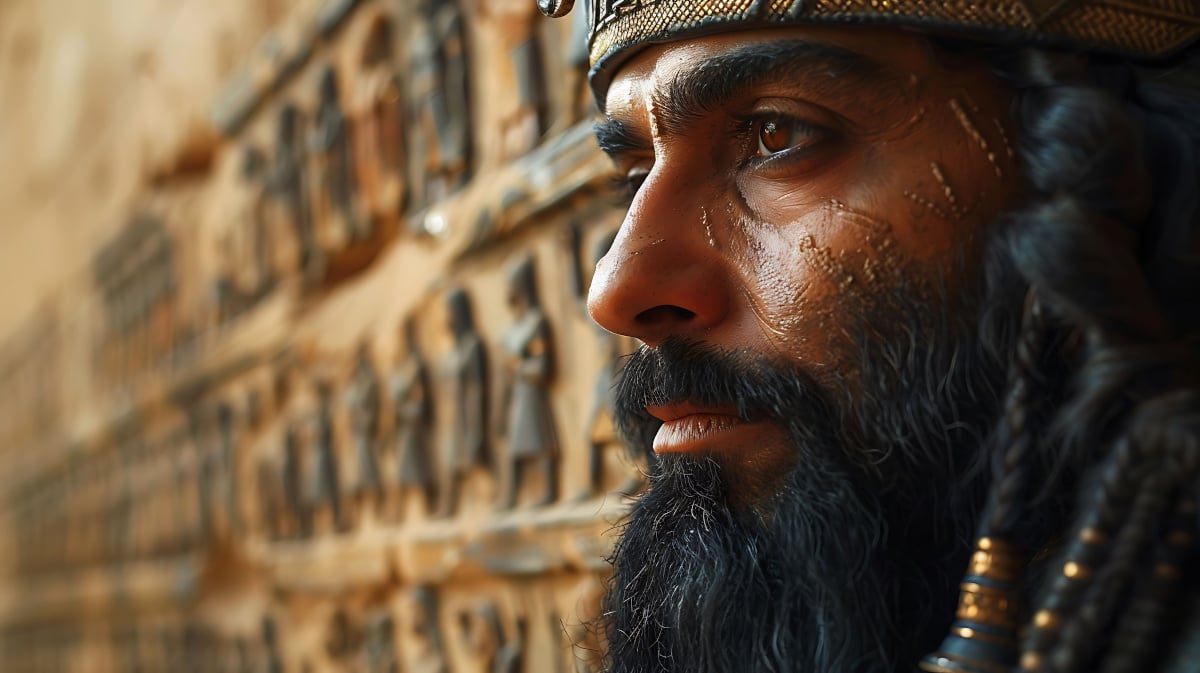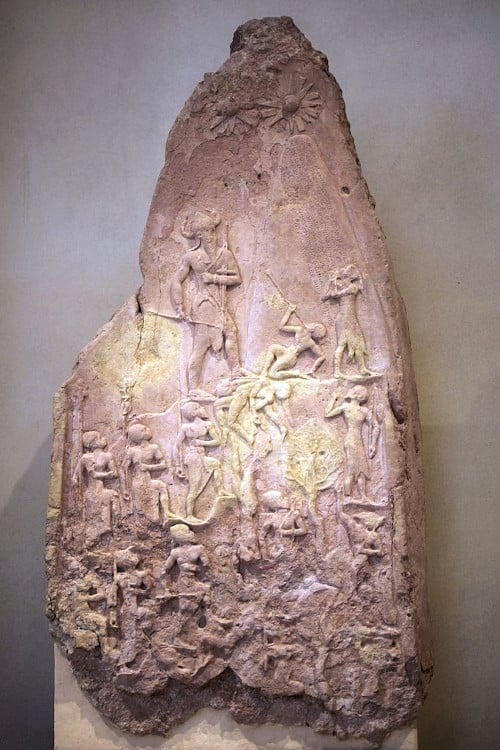
Heroic Tales of a God-Emperor
Long before Homer retold the stories of the mighty deeds of the great warriors who took part in the Battle of Troy, similar tales were told and retold by Sumerian and Akkadian bards. The epic traditions of Sumer and Akkad have, however, and sadly, I may add, not been afforded the same attention in Western society as, for instance, the Homeric tales. This is extremely unfortunate as these heroic tales reflect a period of unparalleled and unique greatness and should therefore at least enjoy equal importance.
The world’s first God-Emperor, who was not only the powerful ruler of the world’s first empire, but also the very first to be worshiped as a great god in the official state religion during his own lifetime, was the great Akkadian Emperor, Naram-Sin. He was a mighty warrior and conqueror, who ruled over the ends of the known world. His unequalled and mighty deeds were not only recorded on steles erected throughout the empire, but these deeds were also recounted in epic songs performed by court bards.
In this article I discuss some of the epics that celebrate the great deeds of the God-Emperor Naram-Sin, epics that count among the greatest heroic tales ever recorded in the long history of mankind.
The God, Naram-Sin
Naram-Sin reigned during the latter part of the 3rd millennium BC in ancient Mesopotamia. After his massive victory during the Great Revolt that took place early in his reign, he was officially honoured as one of the great gods of Sumer and Akkad, a great god who became manifest in the person of Naram-Sin. Evidence exists that the great epic tradition that grew up around his person began soon after the revolt. A fragment dating from the time of Naram-Sin, discovered at the city of Esnunna, located in the same region as Akkad, capital city of the Akkadian Empire, mentions the names of some of his opponents during the Great Revolt. The scholar, Joan Westenholz, writes the following about this piece:

Victory stele of Naram-Sin of Akkad. The Louvre. (Rama / CC BY-SA 3.0)
“This fragment of a student’s poor exercise is the only extant proof that literary works were composed on the theme of contemporary historical events. The triumph of Naram-Sin over the rebellious city-states was probably celebrated in pomp and circumstance… In the city of Esnunna… a teacher made this subject the topic of an assignment of a written composition for a student.”
An intimate relationship existed between the palace and the bards, some of whom are even known to us today. These bards, in their ballads, painted an impressive picture of those rulers and the heroic age of outstanding greatness to which they belonged. They included and set the stories about Naram-Sin to music in their songs, which were already composed and sung during his own lifetime. These songs must also have been very popular amongst those who came after him at the Akkadian and other courts.
Various compositions about the events that happened during Naram-Sin’s lifetime were discovered, some of which are only available in a broken and thus difficult to read format. Most of these ballads focus on the Great Revolt. The great battles are often integrated into one cataclysmic war in which he was the victor, a mighty and powerful victor in whom the divine glory became manifested. In these epic tales, Naram-Sin’s glorious and divine radiance is described in more vivid and impressive terms than in any other description of any other Mesopotamian hero.
The saga tradition of this great emperor is called the Naram-Sin epics or the Gestae Naram-Sinaeorum. The stories told in these epic texts had their origin in the oral tradition as is evident from the sound patterns and other poetic devices characterising the Akkadian legends.




